Special needs pupils 'spend years out of school'
- Published
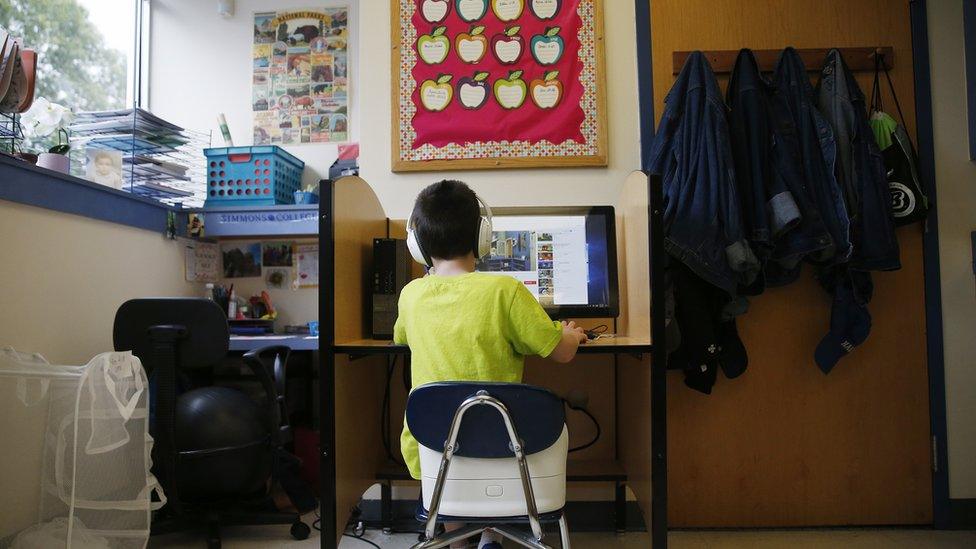
Children with special educational needs are more likely to be taken off the school roll, experts say
Julie becomes tearful when she starts talking about her autistic son's struggle to stay in school. "He has been taught that he's not worth anything," she says.
Sam, 14 - who loves animals and rebuilding computers - was temporarily excluded from secondary school in December 2015.
Julie expected her son would be back in a matter of days. But he didn't go back to school for almost two and a half years.
Julie says Sam was never permanently excluded, and was left in educational limbo.
She applied to eight schools - all of which Sam was rejected from. Julie says he was educated for as little as one hour a day at home by a teaching assistant.
'Rejection'
And for over a year, she says, he was simply taken out on day trips to pet shops and car showrooms by a "personal assistant" paid for by Sheffield City Council.
Sam can, by his mum's own admission, "have a meltdown" when stressed. But it was only when he went to secondary school that "things changed really quickly".
"Sam's mental health has suffered significantly. He has been taught that he's not worth anything. All he has been shown is rejection," she says.
"[Following the end of the home tutor] there was no education at all, there was no resources. Nothing."
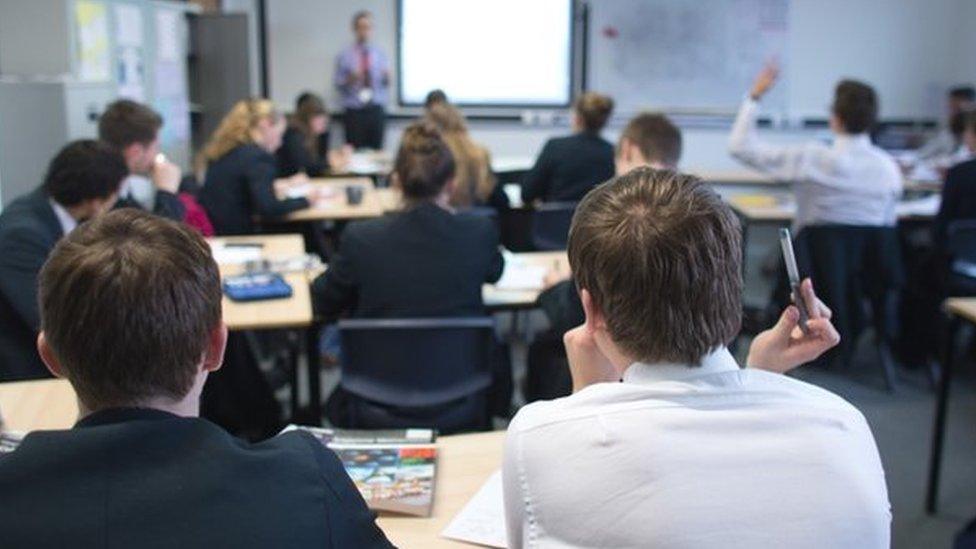
Sam's case is now the subject of an internal investigation by Sheffield City Council and the school, which said: "We want every child in Sheffield to be able to access the education that they need and it is never acceptable when this does not happen.
"We have been working with the family about this and are investigating the situation further to understand what has happened. We want to make sure that no other children in Sheffield are affected in the same way."
But unions and teachers have told 5 live Investigates that thousands of children with special educational needs and disabilities (SEND) are dropping out of education after being "off-rolled" - removed from a school's roll.
'Snowed under'
Lorraine Dormand, is the head at Sam's new school, the National Autistic Society's Robert Ogden School.
She says she is pleased with Sam's progress - but adds that the school is "snowed under" with referrals for autistic children who have been informally and formally excluded from schools.
"It's deeply concerning and is of course very distressing for the children and their families. We are then left to pick up the pieces.
"We are seeing children who have been out of school for years, and the impact can be devastating. It can rob them of their self-confidence.
"They lose faith in the education system, and themselves. As a result of that, and a lack of understanding, too many autistic children end up excluded or off-rolled."
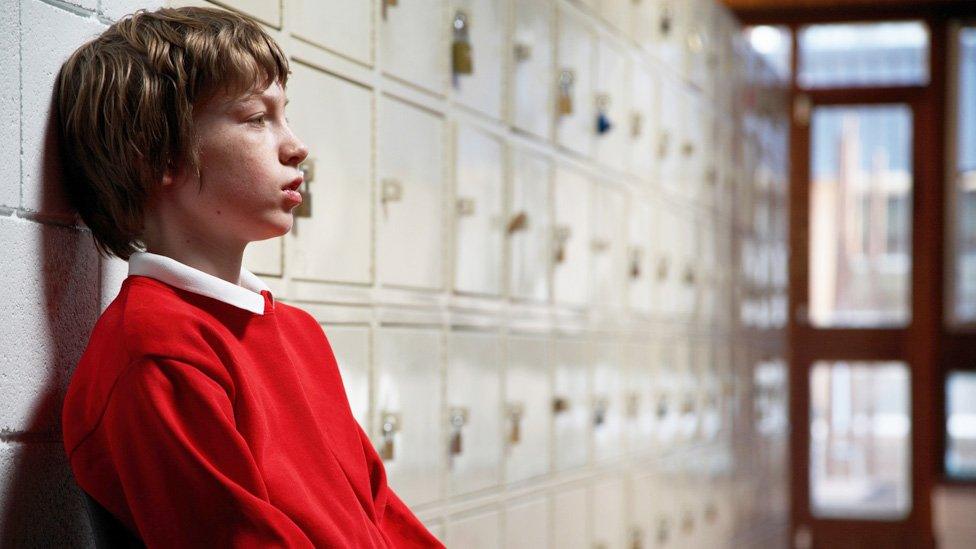
Repeated exclusion can be very distressing for autistic children and their families
Official figures suggest almost 20,000 GCSE students left school rolls in 2017 - and almost a third had special educational needs.
The true scale of the problem is thought to be much higher, according to the National Education Union (NEU), the UK's leading teaching union.
"It is a terrible thing and it should not happen," says Dr Mary Bousted, joint general secretary of the NEU.
"This is happening because of a toxic mix of league tables, inspection regimes and lack of funding. The majority of schools do their best. The problem is, some don't.
"I don't condone it. But I'm not surprised by it."
Nearly 4,500 pupils with autism were excluded from school in 2015-16 - a 60% increase since 2011.
Coercing parents
Inspectors admit that when pupils are off-rolled, they can't always trace what happens to them.
"It is the case that sometimes we don't know where those pupils go; that is something that is concerning to us," says Daniel Owen, Ofsted inspector and the watchdog's national lead on behaviour, attendance and alternative provision.
"In some cases we suspect that school leaders are coercing parents to remove pupils or making decisions that are not in the best interests of the pupils," he added.
A Department for Education spokesperson said that informal unofficial exclusions were "unlawful and unacceptable."
The Timpson exclusions review, due to be published in the new year, is looking into why certain groups of pupils are more likely to be excluded than others, including those with SEND.
5 live Investigates is on BBC Radio 5 live, 18 November at 11:00 GMT - catch up on BBC Sounds
- Published12 November 2018
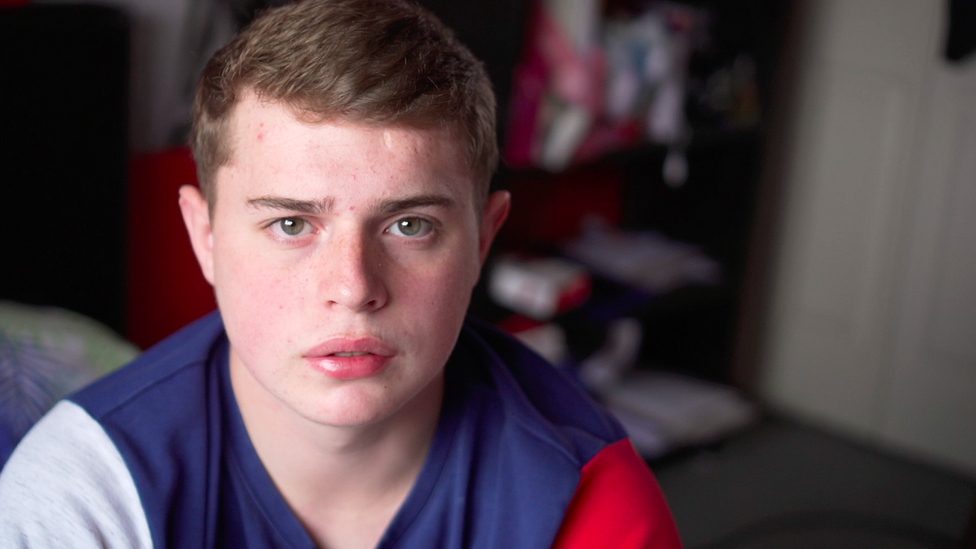
- Published6 February 2018
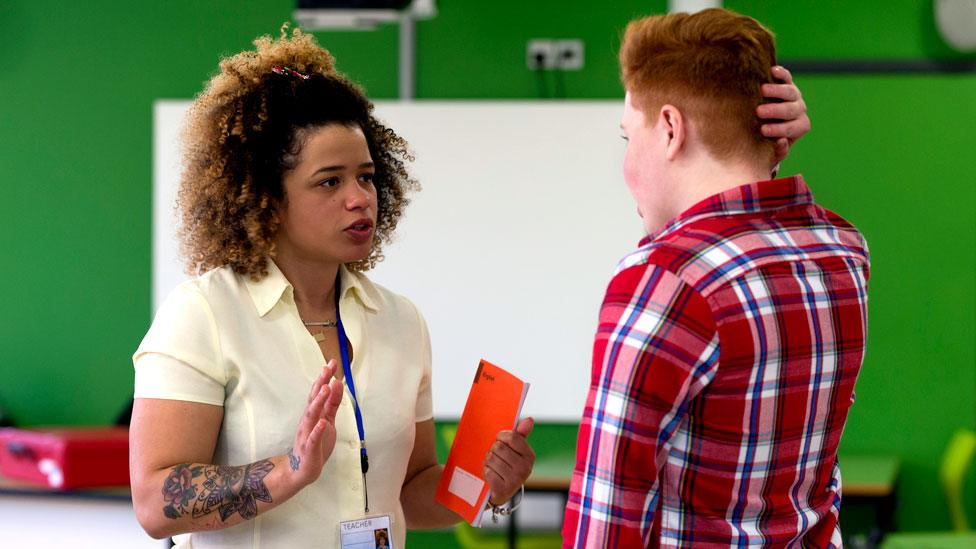
- Published17 September 2018

- Published25 July 2018
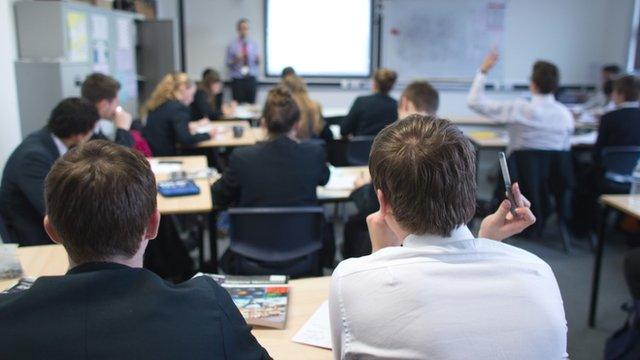
- Published27 July 2018
